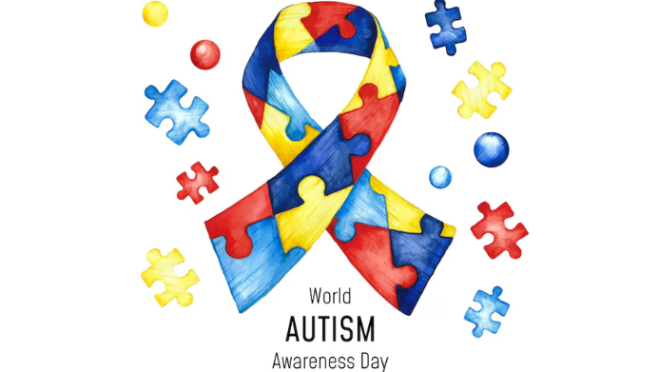World Autism Awareness Day: Accepting neurodiversity through awareness
World Autism Awareness Day: Accepting neurodiversity through awareness

In 2021, approximately 1 in 127 people worldwide were estimated to have autism, totaling around 61.8 million individuals. One may assume that autism is a disorder manifesting through obvious physical and psychological characteristics.
Although this may be true for severe cases, autism can be diagnosed by various means, most of which might not hamper your day-to-day functionality. However, in order to be cognizant and empathetic towards a person on the autism spectrum, society must be aware of the various kinds of diagnosis that are categorised under autism.
First of all, in today’s world, autism is not seen as a disorder. It is accepted as politically incorrect to consider an autistic person to be suffering from a disorder. The root cause of autism is still a topic of vast research, but scientists have a good understanding of how to deal with and work around the deficiencies an autistic person may have. Since most autistic people are still very active and productive members of society, the UN now categorises them as ‘neurodivergent’.
The nuances of autism are still being worked out every year by scientists. To familiarise the world with autism and shatter the existing misconceptions, the UN celebrates 2 April as World Autism Awareness Day. The rate of autism has grown over the years, but that is due to the fact that newer methods of diagnosis are being introduced.
The neurodivergent people often can become a valuable asset for society as they are sometimes blessed with unique abilities and skills that allow them to shine. The richest man today, Elon Musk, also has been diagnosed with Asperger’s syndrome. Elon, in many of his interviews, publicly stated the struggles he had to face at both home and at school for his condition since bullying from other kids and judgement from his own parents were a regular struggle in his childhood.
Asperger’s syndrome just a few decades ago, was not considered a part of the autism spectrum. Many physicians today still lack the knowledge and training to diagnose this condition. As a result, many individuals and also their families may mischaracterise or judge autism as being antisocial or even rude, which may be a cause for suffering for everyone involved.
Bangladesh is estimated to have 594 autistic children for every 100,000. The rate is similar to other countries as well. However, there is still a considerable lack of awareness when dealing with autism. It is still a matter of social stigma, and parents often hide the fact of their child’s condition in fear of social ostracism. There is also an inadequate number of special schools and affordable options for training and special care for these children. Therefore, it is quite natural for most neurodivergent children to be sent to regular schools and be expected to perform to a measuring stick not suitable for their conditions.
Denial and social stigma have been the prevailing factors in rural and illiterate communities. Children in rural areas are often not even subject to investigation for autism. A joint study conducted by Clemson University and North South University in 2013 found that an overall ASD prevalence of approximately 0.15% among children aged 0 to 9 years, whereas the same study found higher prevalence in urban areas (0.3%) compared to rural regions (0.07%), which is probably because in rural regions, the testing and evaluation rate among children is quite low compared to people living in urban areas, who are more educated and somewhat aware and, moreover, have the capacity for diagnosis and to undertake medical care.
This year’s observance, themed “Advancing Neurodiversity and the UN Sustainable Development Goals (SDGs)”, emphasises the connection between neurodiversity and global sustainability efforts. It highlights how inclusive policies and practices can foster positive change for autistic individuals worldwide while supporting the achievement of the SDGs.
Only by fostering dialogue and collaboration across multiple sectors can World Autism Awareness Day 2025 can reinforce the need for sustained efforts to eliminate barriers, promote inclusive policies, and recognise the contributions of autistic individuals to society. Moreover, as a society it is our duty to understand the intricacies and educate ourselves about the autism spectrum to ensure robust and healthy lives for our fellow citizens who are not much different than anyone else.


